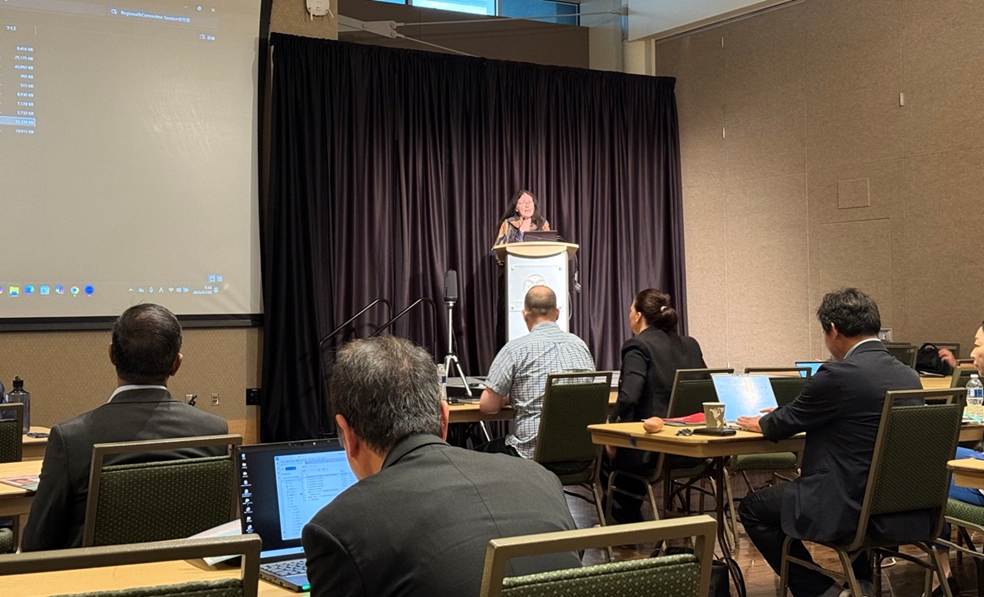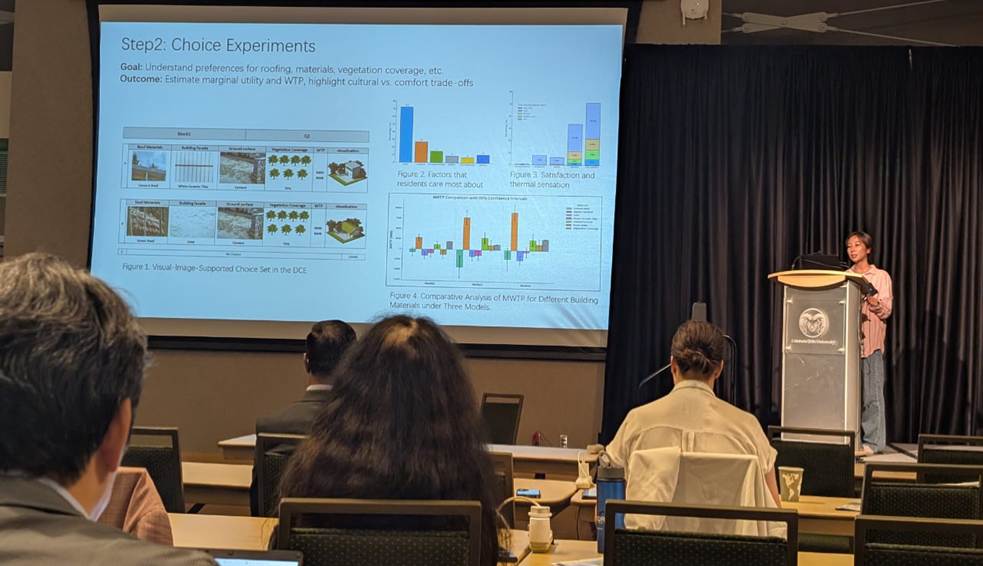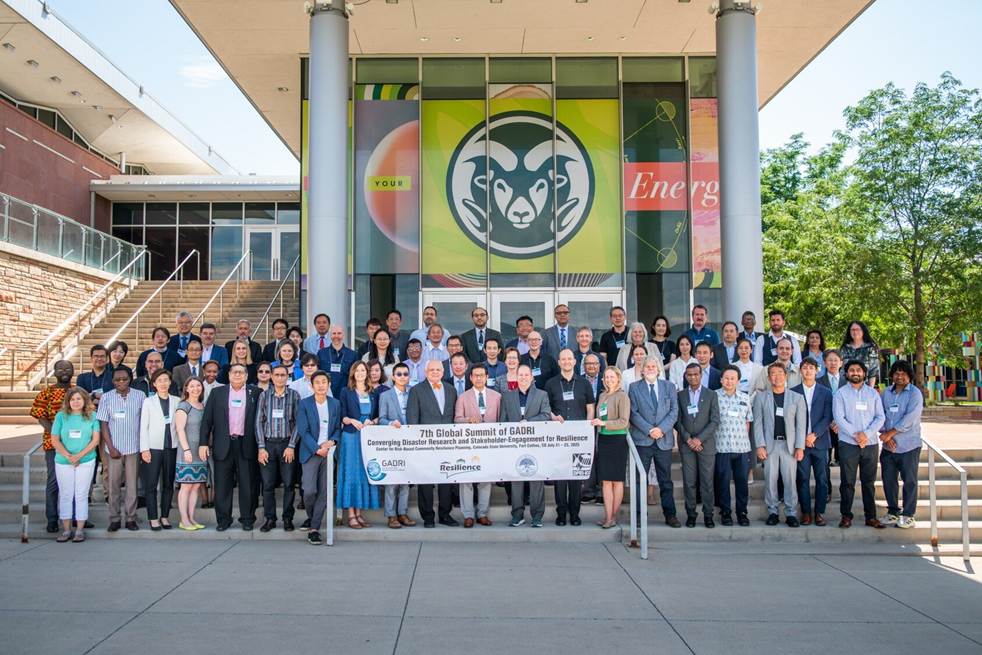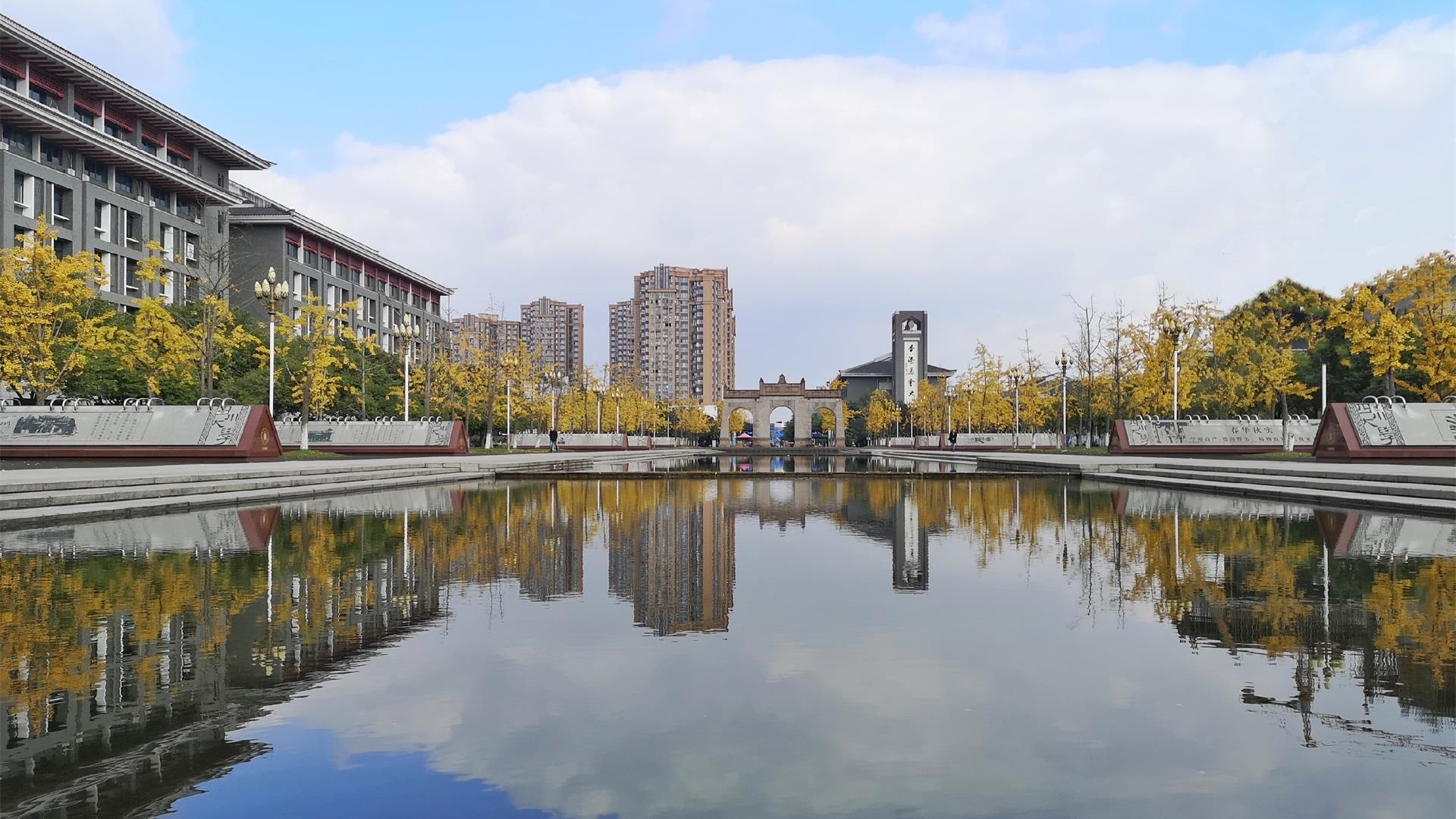From July 21 to 23, 2025, the 7th Global Summit of the Global Alliance of Disaster Research Institutes (GADRI) was held at Colorado State University, USA. With the theme "Convergence for Disaster Resilience", the summit focused on breaking down disciplinary, institutional, and geographical barriers to promote integrated and collaborative approaches to disaster risk governance.
Dr. Qiushan Li, Associate Research Fellow at the IDMR, and Chapter leader of U-INSPIRE Huaxia, was invited to attend the summit and delivered an oral presentation during Parallel Session: Convergent Pathways in Post-Disaster Recovery and Reconstruction. In addition, Professor Gretchen Kalonji, former Dean of our institute and current Chair of the International Advisory Committee of the United Nations International Research Center of Big Data for Sustainable Development, was also invited to attend the summit. She delivered a keynote speech on “Institutional Capacity Building,” in which she emphasized the importance of building global networks for scientific collaboration and data sharing among research institutions. Her remarks highlighted how institutional partnerships and open data ecosystems are essential for strengthening disaster risk governance at the global level.

Dr. Li introduced her lab’s interdisciplinary framework for post-disaster recovery in vernacular settlements. This approach integrates Participatory GIS, microclimate simulation, and discrete choice experiments to analyze residents’ housing preferences in an earthquake-affected area. She emphasized the importance of respecting local knowledge, promoting public participation, and balancing heritage conservation with sustainable development. Dr. Li highlighted that post-disaster recovery is not merely a technical or engineering issue, but a complex systemic challenge involving ecological, cultural, social, and spatial justice dimensions. Addressing such complexity requires collaborative methodologies across disciplines, including environmental science, sociology, anthropology, and urban planning.

Her presentation also addressed issues such as risk reproduction, evaluation challenges, and equity concerns among minority communities in disaster-prone regions. These topics generated strong interest and discussion among participating scholars.
During the summit, Dr. Li also engaged in in-depth exchanges with representatives from disaster research alliances in the UK, South Asia, North America, and Africa. Representing U-INSPIRE Huaxia, she actively promoted the development of a global youth-oriented collaboration network, strengthening connections with UKADR (UK Alliance of Disaster Research), SAARDRI (South Asian Alliance of Disaster Research Institutes), NAAHDRI (North American Alliance of Hazards and Disaster Research Institutes), AADRI (African Alliance of Disaster Research Institutes), and the Natural Hazards Center at the University of Colorado Boulder.

This participation showcased the continued achievements of the Department of Urban Safety, Health, and Management in advancing interdisciplinary research on disaster science. By integrating technological innovation, social research, policy dialogue, and community engagement, IDMR continues to play a vital role in shaping global disaster risk governance and addressing complex disaster challenges through collaborative, multi-platform efforts.














